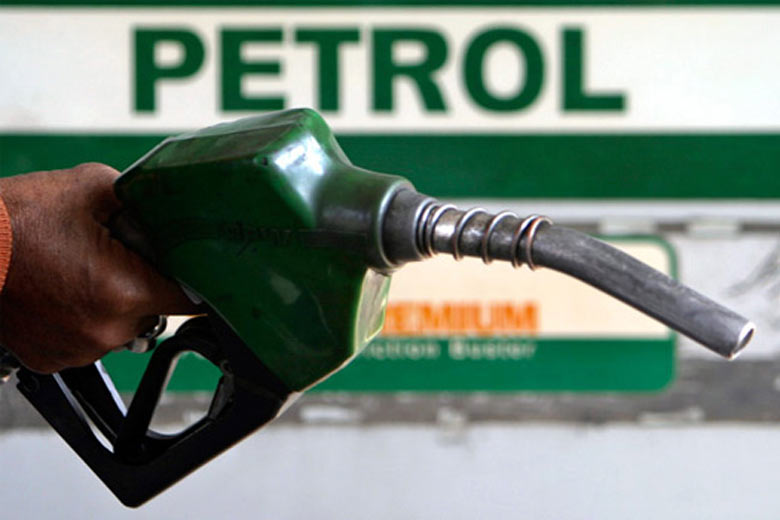Petrol Landing Cost Jumps to N186, Oil Hits $64
Against the backdrop of the rising price of oil prices, the landing cost of Premium Motor Spirit (petrol) imported into Nigeria has increased to N186.33 per litre.
Investors King had exclusively reported on February 9 that the landing cost of PMS rose to about N180 per litre on February 5 from N158.53 per litre on January 7.
Crude oil price accounts for a large chunk of the final cost of petrol, and the deregulation of petrol price by the Federal Government last year means that the pump price of the product will reflect changes in the international oil market.
Going by the petrol pricing template of the Petroleum Products Pricing Regulatory Agency, the landing cost of petrol rose to N186.33 per litre on February 16, with the pump price of the product expected to be N209.33 per litre.
The international oil benchmark, Brent crude, closed at $63.96 per barrel on February 16, up from $59.34 per barrel on February 5.
The rising price of crude oil pushed the cost of petrol quoted on Platts to $560.75 per metric tonne (N163.08 per litre, using N390/$1) on February 16 from $543.25 per metric tonne (N157.99 per litre) on February 5.
Other cost elements that make up the landing cost include freight (N10.29), lightering expenses (N4.57), insurance cost (N0.25), Nigerian Ports Authority charge (N2.38), Nigerian Maritime Administration and Safety Agency charge (N0.23), jetty throughput charge (N1.61), storage charge (N2.58), and financing (N1.33).
The freight cost increased to $35.41 per MT (N10.29 per litre) last Wednesday from $30.04 per MT (N8.74 per litre) on February 5.
The pump price is the sum of the landing cost, wholesale margin and the distribution margins. The wholesale margin is N4.03 while the distribution margins comprise transporters allowance (N3.89), retailer (N6.19), bridging fund (N7.51), marine transport average (N0.15), and admin charge (N1.23).
Apart from the changes in global crude oil prices, the exchange rate of naira to the dollar also affects the cost of imported petrol.
The cost of petrol would be higher if the 410/$1 rate at which the naira closed on Monday at the Investors’ and Exporters’ Foreign Exchange Window was used. The naira closed at 480/$1 at the parallel market.
The Nigerian National Petroleum Corporation, which has been the sole importer of petrol into the country in recent years, is still being relied upon by marketers for the supply of the product despite the deregulation of the downstream petroleum sector.
Oil marketers said recently that they were ready to resume importation of petrol if the foreign exchange was made available to them at a competitive rate.
“The discussion we should be having today is how best to maximise the benefits of the removal of price controls and subsidies while minimising the adverse effects of this action on our citizens,” the Chairman, Major Oil Marketers Association of Nigeria, Mr Adetunji Oyebanji, said at a virtual press briefing.
Brent crude, against which Nigeria’s oil is priced, rose by $1.67 to $64.58 per barrel as of 6:08pm Nigerian time on Monday.

 Forex4 weeks ago
Forex4 weeks ago
 Naira4 weeks ago
Naira4 weeks ago
 Billionaire Watch4 weeks ago
Billionaire Watch4 weeks ago



 Naira4 weeks ago
Naira4 weeks ago






 Naira3 weeks ago
Naira3 weeks ago


 Naira3 weeks ago
Naira3 weeks ago






 Naira2 weeks ago
Naira2 weeks ago
 Economy4 weeks ago
Economy4 weeks ago
















